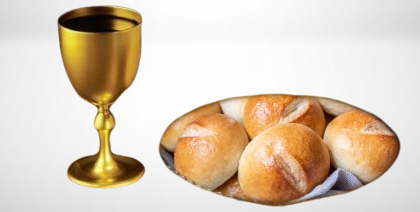
On Holy Thursday we celebrate the anniversary of the promulgation of Jesus’ new commandment of love: “Love one another as I have loved you” (Jn13:34). “…Do you realize what I have done for you?” You call me ‘teacher’ and ‘master,’ and rightly so, for indeed I am. If I, therefore, the master and teacher, have washed your feet, you ought to wash one another’s feet. I have given you a model to follow, so that as I have done for you, you should also do for others.” (John 13:12–15).
The Sacred Triduum leads us into the holiest days of the Church. We walk with our Lord through His final glorification as He celebrates the Passover with His disciples and enters the Garden of Gethsemane to await His arrest. On Good Friday we walk with Him through the stations of His Cross, and finally on Holy Saturday, we sit in silent adoration of His tomb as we await the Resurrection.
Jesus gives us a prophetic action by which He tells us that true greatness (true holiness), is found in humility. Holiness is realized in our lives when we turn our eyes from ourselves and love others through serving them. None of us is the Saviour of the World, but each one of us must become an instrument of this saving act for others. As we accept Jesus’ gift, we are called to turn to others and humble ourselves before them. We are called to let others see our love and realize their dignity in life. We must serve people with humility and put them first. Doing so will then enable us to invite them to imitate us as we imitate Christ. Thus, our humble imitation of Jesus becomes a means by which Jesus invites others to follow Him.
On Holy Thursday, Jesus transformed the Jewish Passover into the New Testament Passover. In its origins, the Jewish Passover was, in fact, a joint celebration of two ancient Thanksgiving celebrations. The descendants of Abel, who were shepherds, used to lead their sheep from the winter pastures to the summer pastures after the sacrificial offering to God of a lamb. They called this celebration the “Pass over.” The descendants of Cain, who were farmers, held a harvest festival called the Massoth in which they offered unleavened bread to God as an act of thanksgiving. The Passover feast of the Israelites (Exodus 12:26-37), was a harmonious combination of these two ancient feasts of thanksgiving, commanded by the Lord God and celebrated yearly by all Israelites to thank God for the miraculous liberation of their ancestors from Egyptian slavery, their exodus from Egypt and final arrival in the Promised Land.
The celebration of the Lord’s Supper is an unbroken tradition from the very beginning of the Church. By it, we are reminded of the death and Resurrection of Jesus. This calls us to remember how Jesus transformed the Jewish Passover into the Eucharistic celebration. After washing the feet of his Apostles and commanding them to do humble service to each other, Jesus concluded the ceremony by giving his Apostles his own body and blood in form of bread and wine as spiritual food and drink, in addition to serving the roasted Paschal lamb.
Exodus 12: 1-8 gives us an account of the origins of the Jewish feast of Passover when the Israelites celebrated God’s breaking the chains of Egyptian slavery and leading them to the land He had given to Abraham, Isaac, and Jacob, establishing a covenant with them and making of them his own beloved people. God gave the Hebrews two instructions: prepare for the moment of liberation by a ritual meal [to be held annually in later years] and make a symbolic mark on your homes to exempt yourselves from the coming slaughter. This tradition continued in the Church as the Lord’s Supper, with the Eucharist as its focal point.
St. Paul in his letter to the Corinthians, I Cor 11: 21-26 identifies a source and purpose for the communal celebration of the Lord’s Supper beyond that which was passed on to him upon his conversion that he had received this “from the Lord.” This suggests that the celebration of the Lord’s Supper is an unbroken tradition from the very beginning of the Church. St. Paul implies that another purpose of this celebration is to “proclaim the death of the Lord until He comes again.” This could mean that Christians, by this ritual act, remind themselves of the death and Resurrection of Jesus; or it could mean that Christians prepare themselves for the proclamation of Christ to the world at large.
Holy Thursday marks the life of the church where Jesus washed His Apostles’ feet – a tender reminder of his undying affection for them. Then he commanded them to do the same for each other. The incident reminds us that our vocation is to take care of one another as Jesus always takes care of us. Finally, he gave his apostles his own Body and Blood under the appearances of bread and wine as Food and Drink for their souls, so that, as long as they lived, they’d never be without the comfort and strength of his presence. Thus, Jesus washed their feet, fed them and then went out to die. This challenges us to become for others Christ the healer, Christ the compassionate and selfless brother, Christ the humble “washer of feet.”
Let us embrace the invitation of Jesus to service without counting the cost, loving others and putting their needs before ours, and finally, become models of the love of Christ for others wherever we are.
AMEN!
Shibutse Anastasia, RSCJ
